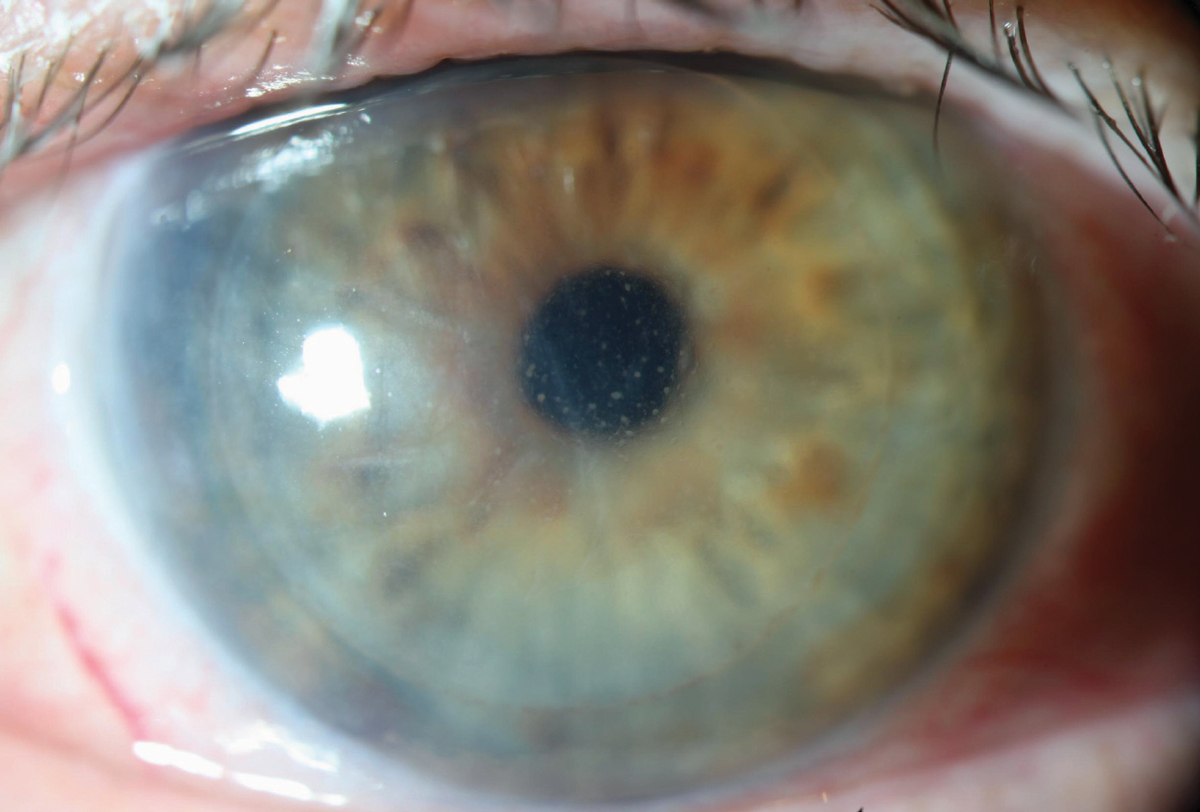 |
|
Unlike previously thought, the association between COVID-19 vaccination and corneal graft rejection may not be as foolproof. Photo: Christopher Kuc, OD. Click image to enlarge. |
When an adverse event is linked to an intervention by temporal proximity alone, it is challenging to determine whether a true association exists. While a condition may be significant, it doesn’t outright prove causation. Although a cursory review of the published evidence may suggest a direct relationship between corneal graft rejection and COVID-19 vaccination, the risk of any adverse event must be viewed within a broader context. A study in Cornea observed that no notable increase in corneal graft rejection rate was noted in 2021, when COVID-19 vaccination was broadly implemented.
After reviewing corneal graft rejection cases diagnosed between January 2018 and December 2021 at an institutional database at a tertiary corneal referral center, a research team based in Italy found that the annual tally of diagnosed cases of graft rejection (19 cases in 2018, 19 cases in 2019, 21 cases in 2020 and 18 cases in 2021) has remained relatively stable. No significant increase in the incidence rate of rejection in the risk period after COVID-19 vaccination was found (risk ratio: 0.56) and previous COVID-19 vaccination was not associated with graft rejection in either unadjusted (hazard ratio: 0.77) or adjusted Cox models (hazard ratio: 0.75).
“Based on routinely collected longitudinal data using standard case definitions and methods of ascertainment, our data do not lend support to an association between COVID-19 vaccination and corneal graft rejection,” the researchers wrote in their paper. “Given that the risk of rejection persists throughout the lifetime of the corneal graft even without an identifiable trigger, a background incidence can account for rejection episodes that expectedly occur at any time over any given period after keratoplasty.”
However, the available sample size to assess the risk of this rare event within this small target population from a single center considerably limited the precision of the study’s estimates from any statistical analysis.
Considering the reversibility of corneal graft rejection through prompt management, the researchers still believe that the benefits of vaccines that protect against life-threatening COVID-19 disease still far outweigh the risks.
“These findings provide timely reassurance regarding the safety of vaccination, which can ease the anxiety of vaccine-hesitant patients, inform health professionals actively engaged in vaccine counseling and engender a greater level of public trust on COVID-19 vaccines,” they concluded.
Busin M, Zauili G, Pellegrini M, et al. COVID-19 vaccination may not increase rates of corneal graft rejection. Cornea. August 11, 2022. [Epub ahead of print]. |


